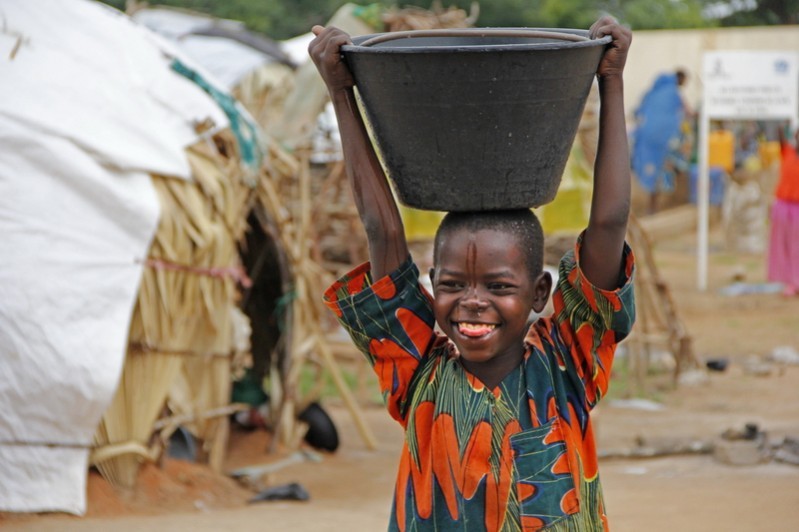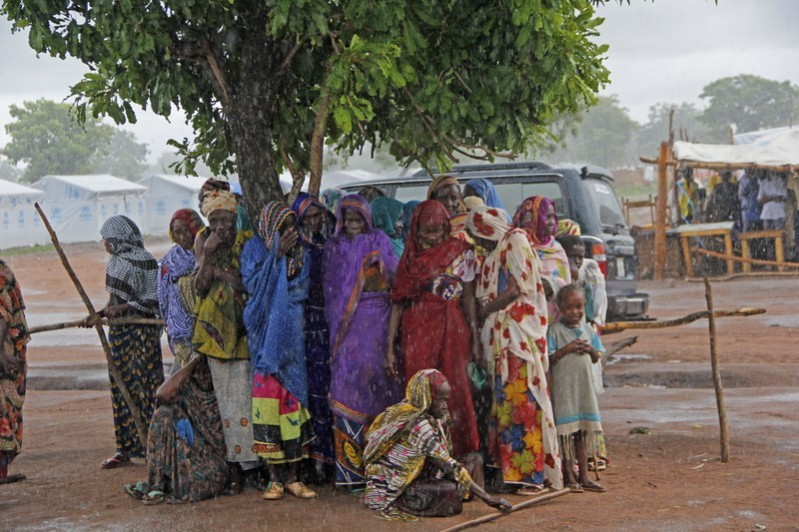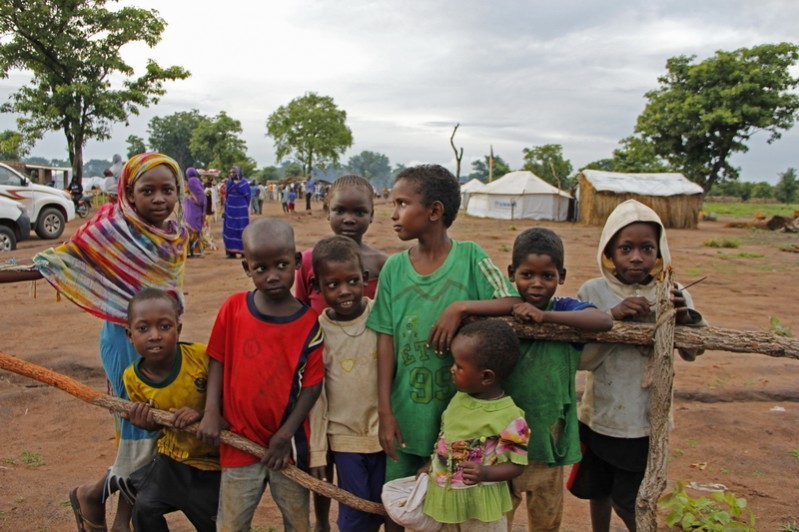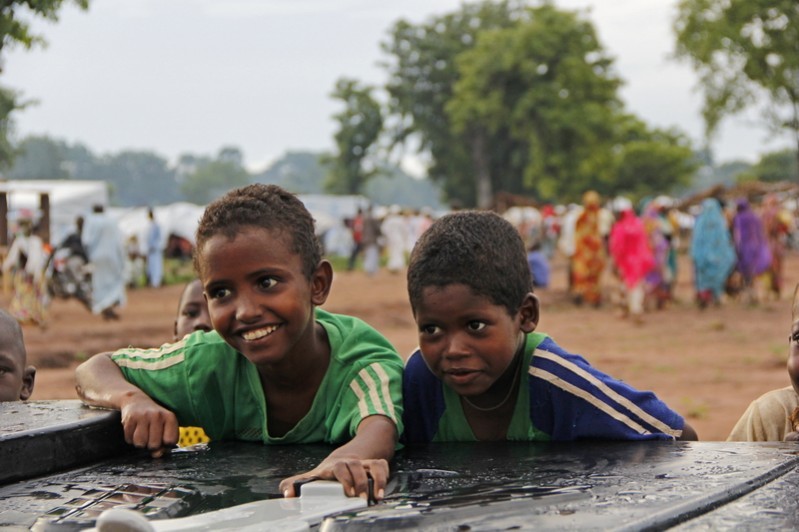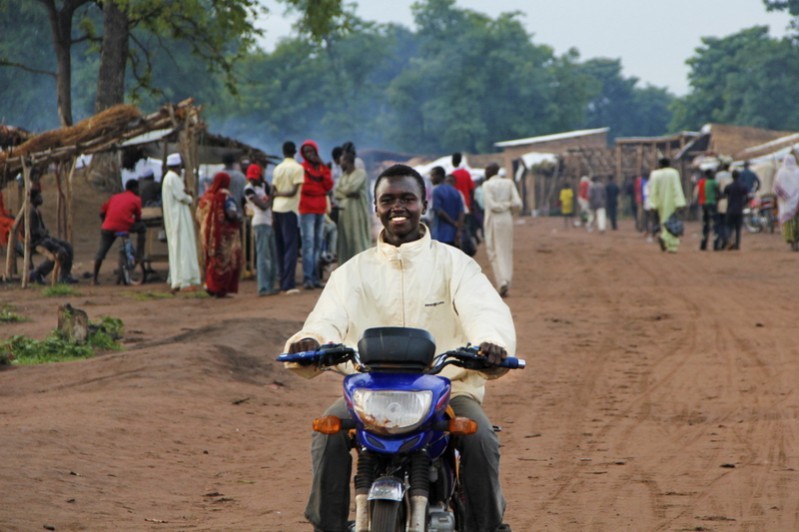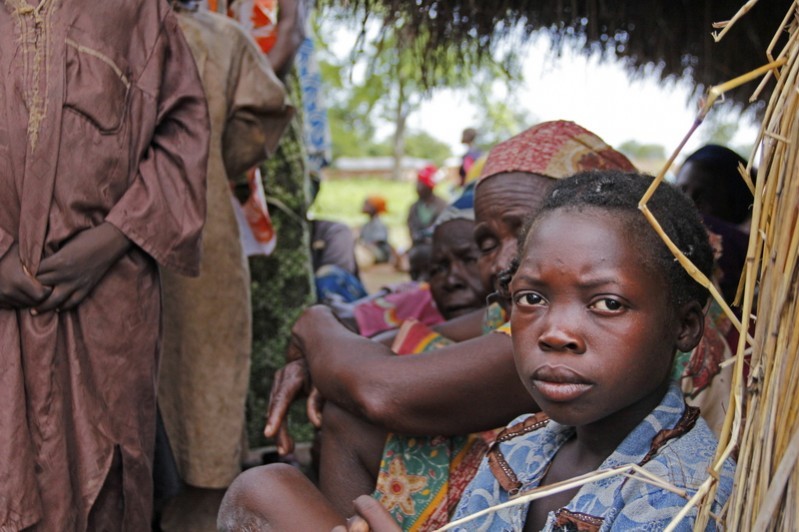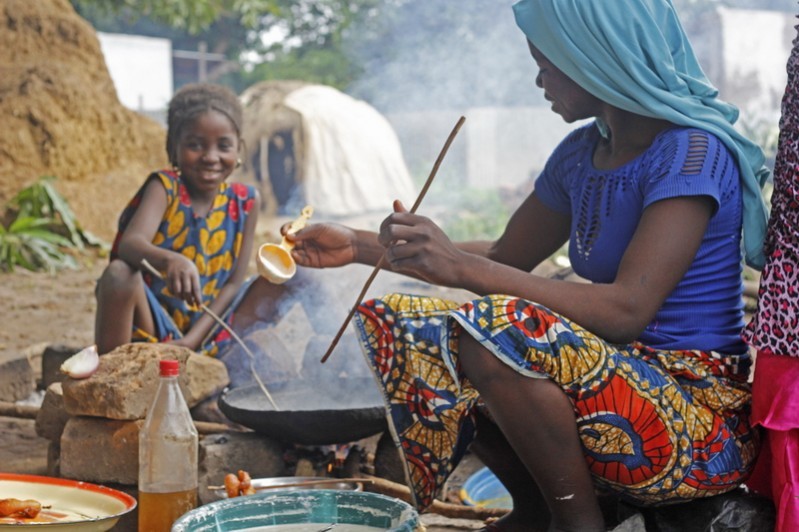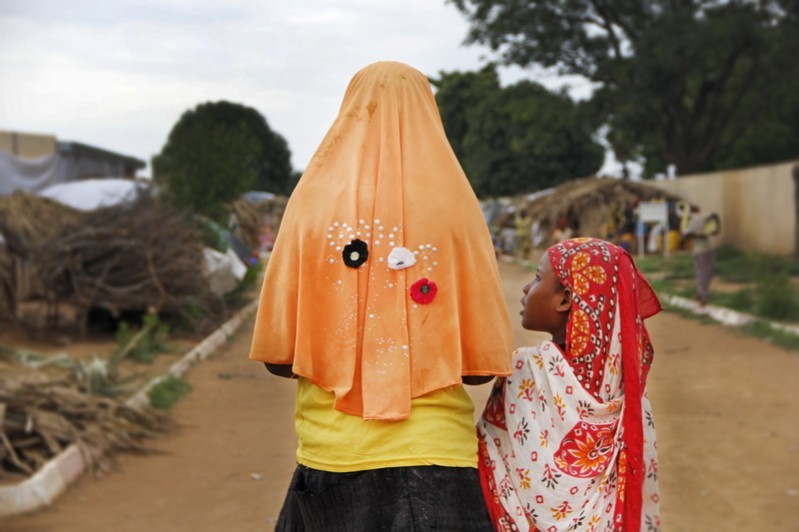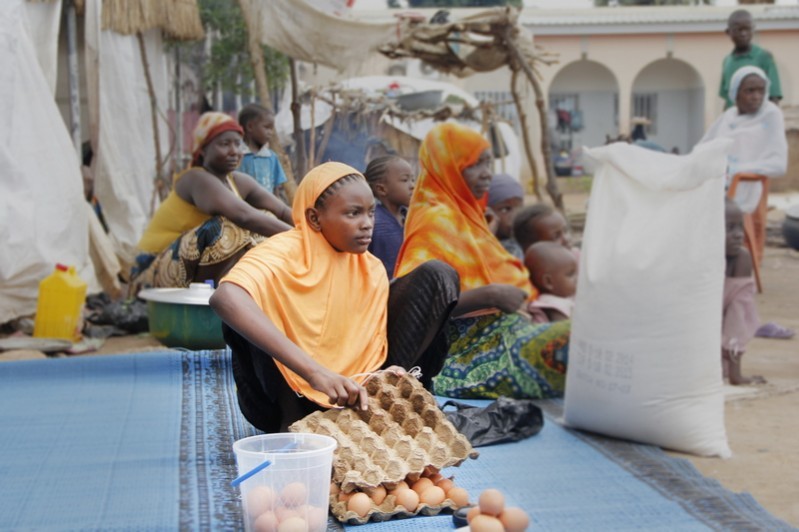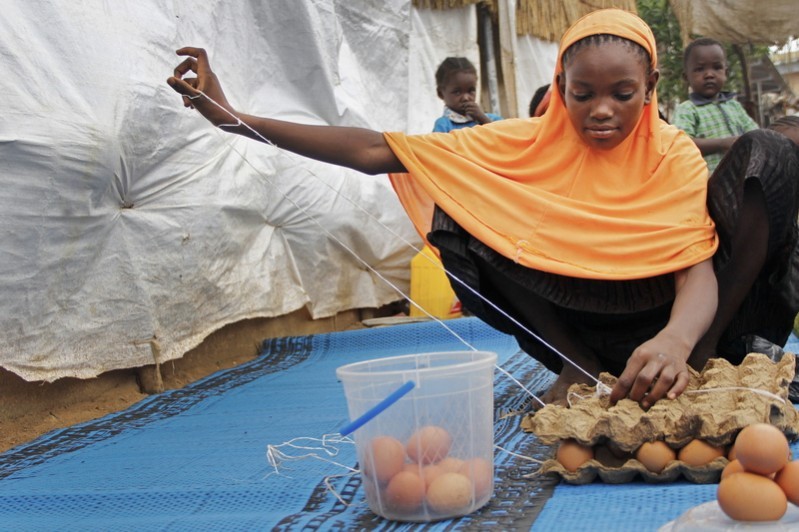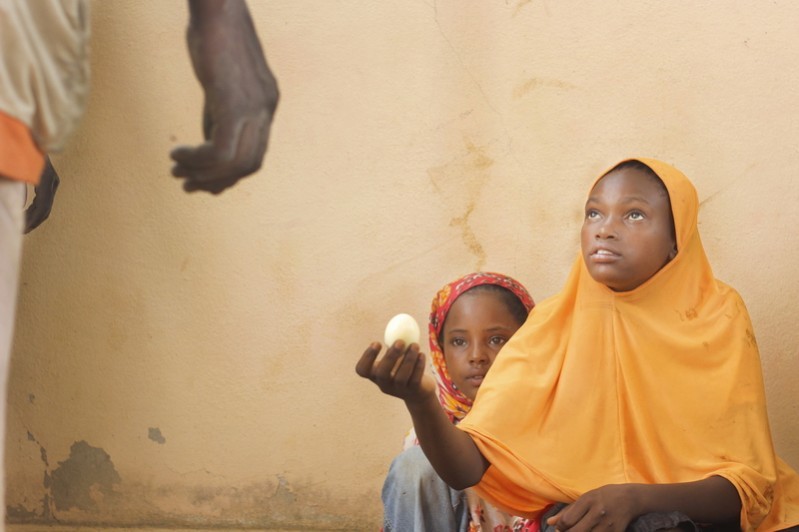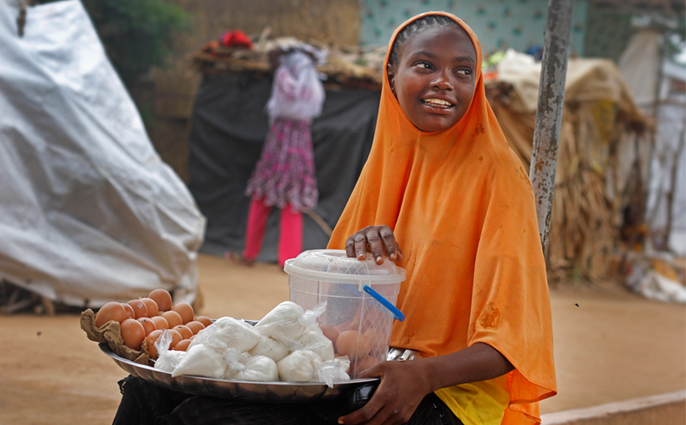
Due to the massacre the Christian gangs have applied against the Muslims, tens of thousands of people that have escaped from Central African Republic and are forced to seek refuge in neighbouring countries. Although there are French soldiers in the country the violence against the Muslims has not ceased. Without considering the women and children who are trying to escape, they are being killed with machetes and various different methods in the middle of the streets. IHH managed to reach and distribute 25,000 people food packages in Ramadan, to the people who have achieved to escape and take refuge in Chad.
Mebruka is one of the children who I have met at the Doba Camp who is a refugee that has escaped from Central African Republic and has lost her family in the attacks. She is just 13 years old. She explained in tears that her father was killed by Christian gangs as he left home to go to Jumu'ah Prayer on a day where Christian gangs were hunting Muslims street by street. After the raids on Muslim homes, her and her mother decided to go to a safer area. However, not long after they left her mother and many people were killed in frontof her due to ambush of the Christian anti- balaka gang. Mebruka coming to Chad was much later with the aid of her aunty. After walking for many days with her aunty they managed to escape from the gangs and reach the border of Chad.
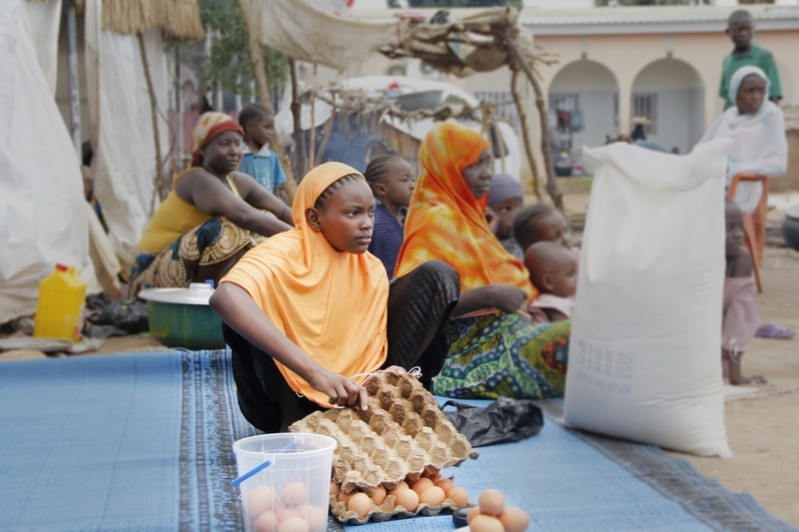
Mebruka explained all this without lifting her head, her eyes locked to a point, as if she was living that moment. To avoid getting her more upset, I tried to ask more ordinary questions, like whether she missed anything. She just said with her eyes welling up, that she used to have prettier dresses. Like everyone else, she only has one outfit, the one that was on her when she escaped. One of the problems at the camp is the lack of clothing.
While living in her own country, Central African Republic, Mebruka worked in her mother's restaurant. Her older brothers used to help their father who was dealing with stockbreeding. She explains that they had quite a nice life, with a little yearning and longing. Everyone in the camp knows Mebruka, because every morning she prepares her egg tray and walks around the camp trying to sell eggs and sugar. She first boils the eggs, fills the sugar into bags and starts to wander from tent to tent. IHH teams that had reached here before saw that she had an interest in trade and left a small capital, this way she can earn enough money to take home a few more bread. We are supporting both Mebruka and her close friend to do trade.
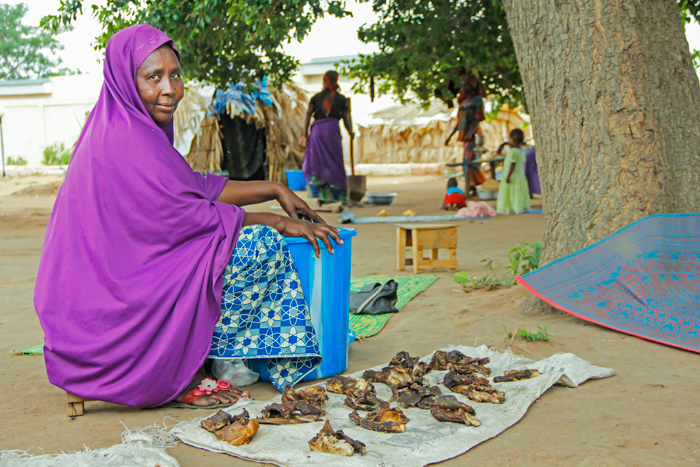
In the Doba camp that Mebruka is in there are 6,700 people living in difficult conditions. Most of the time there is nothing to eat besides millet and peanuts. The women try to dry and make a dish out of trashed animal cartilage, bone, skin and so on. On the first day of Ramadan, before the camp residents had their first Ifdar we leave the camp at least a month’s supply of flour, sugar, oil and pasta, and hit the road to go to another camp. Mebruka farewells us with a smiling face.
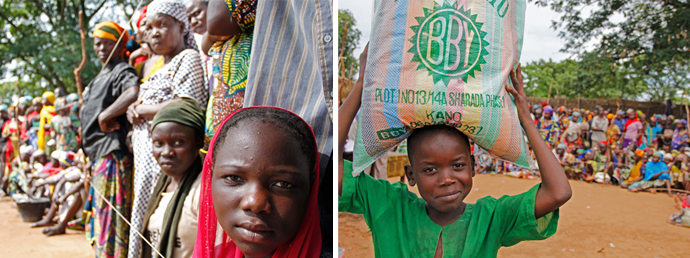
94 per cent of the children that reach the camp have no mother or father
After a day-long journey, we provided the Doba camp food aid and then visited Gore camp one of the biggest camps in the region. The majority of the Gore camp is formed of women and children, there are 11,173 refugees living in the camp. 94 per cent of the children in the camp have reached here with no mother and father. Children with relatives stay with them, while the others who do not have anyone have to take care of themselves. At the Gore camp food packages consisting of rice, flour, sugar, oil, pasta, tomato paste and tea are being distributed and we responded to the Ifdar invitation of the region's governor.
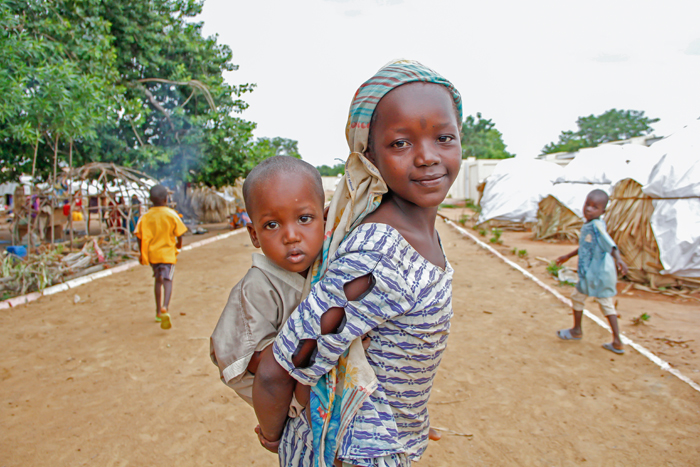
I am taking note of what the Governor has said; he begins with "I know IHH very well" and continues: "You were the first to come here and now this is your third time. You came at such a time, I do not know how to thank you, all the store rooms were empty, there was nothing. Today is the first day of Ramadan, if you had not come, how were these people meant to open their fast?"
So people can open their fast in peace, on another day we go to a camp which is much further away: Mbito Refugee Camp. There are 8,200 adults in this camp. As they have nothing to eat they also have nothing to wear. Small children are naked, the clothes the men are wearing are torn and dirty, the women have no other clothes besides the one on them. To reach the camp from the country's capital you have to travel on mostly soil and rough roads for 900 kilometres. Because it is a camp difficult to reach there is less aid and it is in a pretty awful situation.
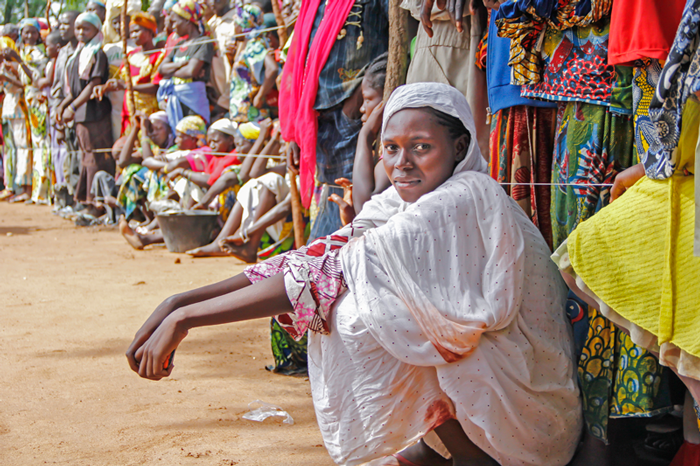
The possibility of returning home
Under difficult conditions in our four-day journey we delivered 25,000 people food packages in three camps. We had conversations with the youth and played games with the children just so we can add a little bit of joy to their lives. It is definite that the Central African refugees need more help. However, an absolute solution is for the events to settle down and for the refugees to return to their homes safely. External forces using Central African Republic and regional countries as a competitive environment is making it difficult to ensure stability. Muslim countries and people have a lot to do in regards to this issue.


